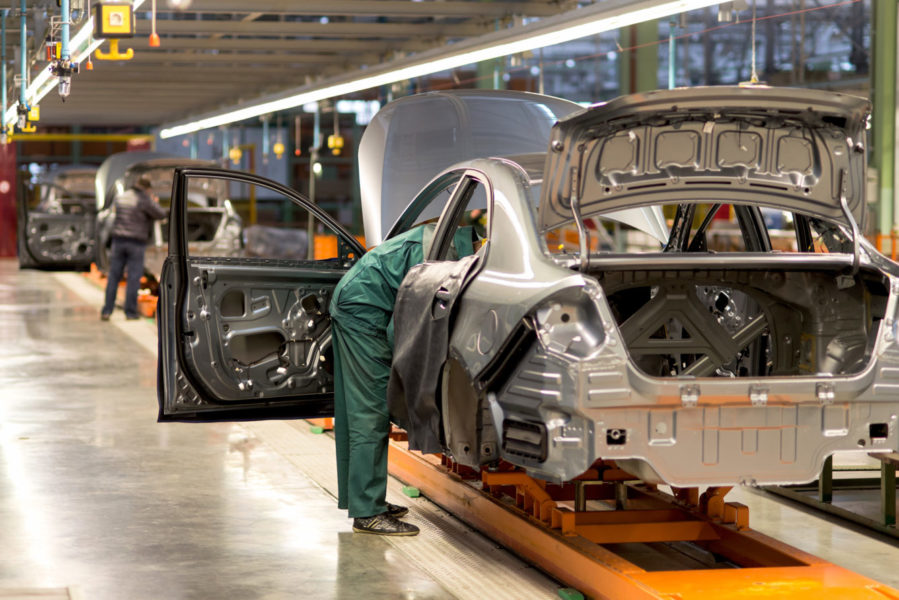Exploring the Transformative Power of Generative AI in Manufacturing and the Automotive Industry

In recent years, the integration of Artificial Intelligence (AI) into manufacturing processes has revolutionized the industry, paving the way for greater efficiency, productivity, and innovation. One of the most promising advancements within this realm is Generative AI, a cutting-edge technology that holds immense potential for reshaping traditional manufacturing practices. This article delves into the applications and implications of Generative AI specifically within the automotive sector, highlighting its role in driving unprecedented advancements and fostering a new era of manufacturing excellence.
Understanding Generative AI:
Generative AI, a subset of artificial intelligence, refers to a class of algorithms capable of generating new content autonomously, often based on input data or predefined parameters. Unlike traditional AI systems that rely on predefined rules and patterns, Generative AI possesses the remarkable ability to create novel outputs, ranging from images and text to designs and simulations. Through iterative learning and optimization, these algorithms continuously refine their outputs, mimicking human creativity in generating diverse and high-quality solutions.
Applications in Manufacturing:
Within the manufacturing landscape, Generative AI holds immense promise across various domains, including product design, optimization, and prototyping. By leveraging vast datasets and computational power, Generative AI algorithms can autonomously generate design alternatives tailored to specific requirements and constraints. This capability streamlines the product development process, enabling manufacturers to explore a broader design space and identify optimal solutions more efficiently.
Moreover, Generative AI facilitates rapid prototyping by generating detailed 3D models and simulations, allowing manufacturers to assess design feasibility and performance virtually. This iterative approach accelerates the prototyping phase, reducing time-to-market and minimizing costly errors. Furthermore, Generative AI enables the optimization of manufacturing processes by analyzing production data and identifying opportunities for efficiency improvements and resource optimization.
Generative AI in the Automotive Industry:
In the automotive sector, Generative AI is poised to revolutionize various aspects of vehicle design, manufacturing, and performance optimization. From conceptualizing futuristic vehicle designs to enhancing manufacturing processes, Generative AI offers unprecedented capabilities that are reshaping the automotive landscape.
Design Innovation:
Generative AI empowers automotive designers to explore innovative design concepts and streamline the design iteration process. By inputting design parameters and performance criteria, Generative AI algorithms can generate diverse design alternatives, considering factors such as aerodynamics, structural integrity, and aesthetic appeal. This iterative design approach enables designers to push the boundaries of creativity while ensuring the feasibility and functionality of proposed designs.
Manufacturing Optimization:
In manufacturing, Generative AI plays a pivotal role in optimizing production processes, enhancing quality control, and reducing manufacturing costs. By analyzing production data and identifying inefficiencies, Generative AI algorithms can suggest process improvements, minimize material wastage, and optimize resource allocation. Additionally, Generative AI facilitates predictive maintenance by analyzing equipment sensor data and identifying potential maintenance issues before they escalate, thereby minimizing downtime and enhancing overall operational efficiency.
Supply Chain Management:
Generative AI also offers significant benefits in supply chain management within the automotive industry. By analyzing supply chain data and demand forecasts, Generative AI algorithms can optimize inventory management, streamline logistics operations, and mitigate supply chain disruptions. This proactive approach enables automotive manufacturers to maintain optimal inventory levels, minimize stockouts, and enhance overall supply chain resilience.
Challenges and Considerations:
While the potential of Generative AI in the automotive industry is vast, it also presents challenges and considerations that must be addressed. These include concerns related to data privacy and security, ethical implications of autonomous decision-making, and the need for workforce upskilling to harness the full potential of Generative AI technologies. Additionally, ensuring the robustness and reliability of Generative AI algorithms is crucial to prevent unintended consequences and ensure safety in manufacturing processes and automotive applications.
Conclusion:
Generative AI represents a transformative force in manufacturing and the automotive industry, offering unprecedented capabilities for design innovation, manufacturing optimization, and supply chain management. As manufacturers continue to embrace AI-driven technologies, the integration of Generative AI promises to unlock new levels of efficiency, agility, and competitiveness.
ZBrain, LeewayHertz’s innovative generative AI platform, stands at the forefront of transforming operations across various industries. This cutting-edge platform is designed to elevate and streamline diverse business processes, with a particular focus on procurement. By leveraging custom LLM-based applications tailored to individual client needs, ZBrain excels in optimizing workflows, ensuring operational efficiency, and enhancing overall customer service. As manufacturers and automotive companies explore opportunities to harness the power of Generative AI, solutions like ZBrain offer a compelling pathway to achieving transformative outcomes and driving sustained business success.
By harnessing the power of Generative AI, manufacturers can usher in a new era of innovation and excellence, driving sustainable growth and shaping the future of manufacturing and mobility.






